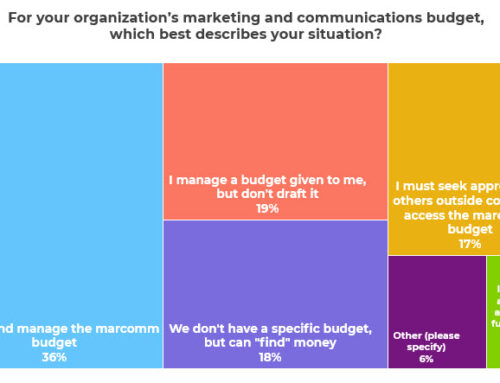 I read an interesting political article in Newsweek yesterday called “When It’s Head versus Heart, the Heart Wins” that has tons of parallels for nonprofit marketing.
I read an interesting political article in Newsweek yesterday called “When It’s Head versus Heart, the Heart Wins” that has tons of parallels for nonprofit marketing.
All of the campaign gurus agree — people are drawn to candidates who “assuage fear, inspire hope, instill pride or bring some other emotional dividend.” It’s more important what people feel than what they think, thus the facts don’t really matter all that much. This explains why so many people seem to vote against their own economic self-interest.
According to the article, anxiety does push people to seek out new information about candidates. Unease moves people to find ways to feel more comfortable. If someone is anxious about terrorism, they’ll pay attention to which candidate has the best plan to make them feel safer. But enthusiasm has the opposite effect – it closes voters’ minds to new information. Their hearts have been won over, so there’s no need for the brain to process more data. Candidates just have to keep ’em feeling good.
Katya Andresen also blogged on emotions that motivate this week when she recounted a recent post by Seth Godin. Seth contends that people act based mostly on three emotions: fear, hope, and love. Katya cautions nonprofits about overdoing the fear angle and instead advocates the hope and love angles.
Based on the Newsweek article, I’d add pride to hope and love. Can your make potential donors feel genuine pride in themselves by giving to your organization? What is it about helping your nonprofit specifically that could make someone swell and gush? If you can work it out in a way that feels genuine, you can probably chuck a lot of your fact-based marketing materials.
Personal identity is also huge in politics and in nonprofit marketing.
The article also talks about how it’s important that a voter identify with a candidate at the gut level. It made me crazy when I heard people say they were voting for George Bush because he was the kind of guy you could have a beer with, but this is exactly why. The article mentions the identity conflict for black women voters this year — do they identify themselves first as a woman (and thus vote for Hillary) or first as an African-American (and vote for Barack)? And Hillary’s choked-up moment? Women her age completely identified with what she was saying and feeling and could see themselves reacting the same way under that intense pressure. They came back around in big numbers for Hillary in New Hampshire, even though a lot of them had been in line for Obama Hope Train tickets before she almost cried.
Newsweek also mentions a study I found really interesting. Personal identity is so important to action that Asian girls who were asked to identify their gender on a math test didn’t do as well (because girls can’t do math, right?). But when they were asked to identify their ethnicity, they did much better (because Asians are good at math).
Can you tap into the personal identity of a segment of your supporters and make a firm link to your organization? Describe what it is like to be in their shoes and then see if you can find a natural connection to your organization. “I am a (describe the person’s demographics) and therefore supporting (fill in your organization) feels entirely natural to me because (explain how it reinforces the person’s identity).”
Remember that series of posts I did (here all on one page) on the University of California’s direct mail makeover? This connection to personal identity is exactly why, after getting that mailer, I gave to Cal for the first time since I graduated. The internal dialogue went like this: “I am a (creative, independent firebrand) and therefore supporting (Cal) feels entirely natural to me because (Cal nurtures and graduates innovative, free-thinking people). The fact that I’m an alumnae puts me in the target audience, but that alone was not enough to inspire me to give, because I don’t really consider going to Cal part of my core personal identity. This exercise isn’t easy and you’ll need to play around with it, but it’s worth giving it some serious thought.
And what about those people who are already enthusiastic supporters? That’s much easier. Just keep feeding their hearts, and don’t worry so much about their heads.






